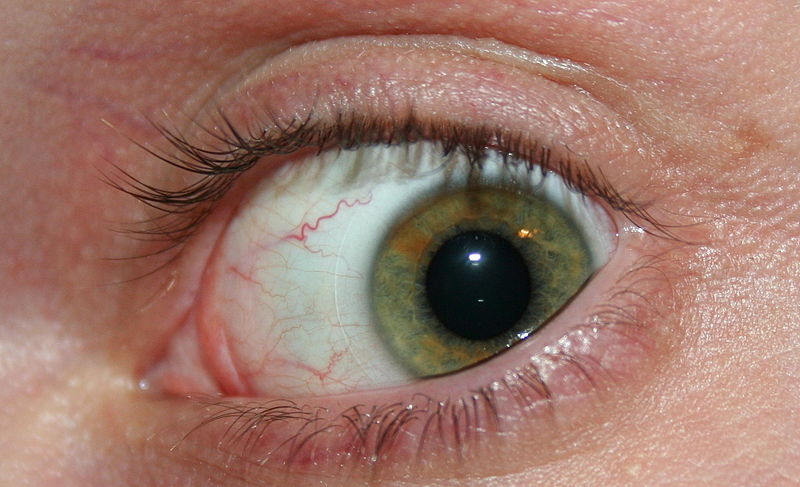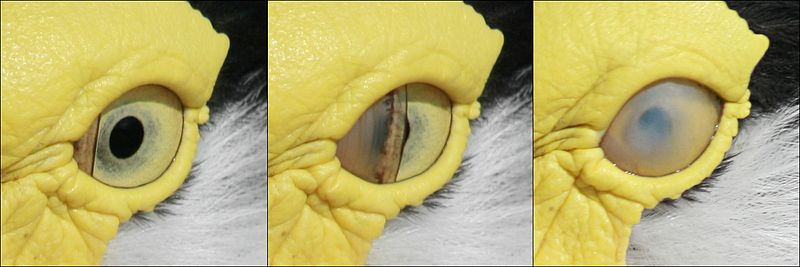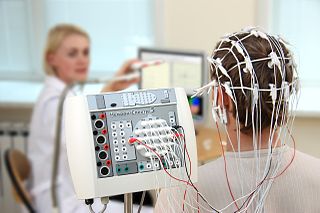Do Humans Have an Inbuilt GPS?
Do Humans Have an Inbuilt GPS?
In the world of, compasses, GPSs, satellites, etc. getting a location or tracking an object is just one button away. Do we find our way to our car in a crowded parking lot via a sort of inbuilt magnetic sense?
But do humans have an internal track-like device such as a compass? Let us find out.

Image from Unsplash
Navigators
The magnetoreception, which is the study of the inherent trait to sense magnetic fields, was a study that was not taken seriously in the 20th Century by scientists.
But it was a topic that has captured people's imaginations and interests.
In the past half-century, the various scientist has shown that magnetoreception in birds, fish such as salmon, honeybees, homing pigeons, and almost every migratory animal out there.
For instance, sea turtles use the earth's magnetic field to navigate the sea. A researcher in this area, J. Roger Brothers, a biology graduate from the University of North Carolina in the USA has this to say.
Our results provide evidence that turtles imprint on the unique magnetic field of their natal beach as hatchlings, and then use this information to return as adultsSource.
The British researcher, R. Robin Baker wants to prove the human angle to this tracking by magnetic fields. So, in the 1980s he had a bus pick students who he blindfolds with different materials. Some he used a non-magnetic metal material, while in others he used a magnetic metal material in their blindfolds.
The bus drove around for a while around the countryside. He would then ask the blindfolded students to identify their takeoff point by pointing in its direction. In many trials, those without magnetic material on their blindfolds got the right direction while the ones with magnets in their blindfolds failed to do so.
This claim was counteracted by Joe Kirschvink who found Baker's experiment was contaminated.
The experiments could not stand up to the scrutiny of other scientists. But he was not to be deterred as he published a paper which could be read here in Nature Journal shortly after in 1983 where he wrote about the human sinuses being magnetic.
Intrigued, Kirschvink-now a professor at Caltech-asked for samples of the magnetite, and Baker obliged. But within hours of receiving the samples, Kirschvink determined that the samples were contaminants, artifacts from the surgical steel saw that Baker had used to slice open the bone. Gould, now thoroughly annoyed with Baker and the "waste of time" that his research has become, welcomed the news from his former Princeton colleague.
Baker eventually admitted that his magnetite samples were contaminated, but he kept pushing his ideas further, still convinced that humans had a magnetic sense. Source:Page 21
Baker had to move on to other things, but when asked to comment on his past work he said this.
I’d spent nearly a decade, tested thousands of people under all sorts of conditions, and had absolutely no doubt. Then people did a few tests here and there and claimed the experiments didn’t replicate. Even after I’d collected everybody else’s results and published that taken together, they did, in fact, constitute successful replication, nobody wanted to know.Source
The Carltech geophysicist, Kirschvink, seeing Baker's weak points tried to be more careful in testing out this assertion. Instead of using blindfolds, he opted to measure the brainwaves of test subjects using electroencephalography (EEG) and adopting an electromagnetic proof metal box known as Faraday cage.
He applied the synthesized earth's magnetic field and rotated the field anticlockwise. The neural waves known as alpha waves, which is usually in the range of 7.5-12.5 Hz, was noticed on the EEG to have dropped.
That is an indication the brain is processing an activity. Kirchvink concluded his experiment by saying that humans do have the ability of magnetoreception.
Trying to Make Sense of The Result
From the Baker's published work of 1983, Magnetic bones in human sinuses, magnetite played a prominent role in that work. He said that they could be found in human's sinus bone. The magnetite is a magnetic iron mineral that is highly sensitive to magnetic fields that are found in homing pigeon's beaks and many other migratory birds. The fish have it in their noses. Though also present in humans, other scientists think it is part of iron metabolism (immune system) and not a navigational feature.
The other theory is to do with cryptochrome, which is present in bird's eyes and is said to sensitive to the magnetic fields of Earth.
The birds are not the only one that has cryptochrome. Humans have two of them, the CRY1 and CRY2, that handles the body clock function. Lauren Foley from the University of Massachusetts Medical School published an article in Nature where he stated that CRY2 in human's retina could function as a magnetosensor.
Do humans have that magnetoreception? The answer is probably as there are still a lot of research ongoing. It could also be the magnetite presence may just be a part of our evolutionary past no longer needed, just like the wisdom teeth, tails,nictitating membrane, etc.
 |  |
| A | B |
|---|---|
| Wikipedia : Human eye showing vestigial part of the eye (plica semilunaris) | Wikipedia : The blinking eye of a Masked Lapwing in Cairns, Queensland, Australia. The nictitating membrane closes from only one side |
But getting to find your car in that crowded park is one thing that is guaranteed to be still tough :)
References
If you write STEM (Science, Technology, Engineering, and Mathematics) related posts, consider joining #steemSTEM on steemit chat. If you are from Nigeria, you may want to include the #stemng tag in your post. You can visit this blog by @stemng for more details. You can also check this blog post by @steemstem here and this guidelines here for help on how to be a member of @steemstem.



interesting discussion. It may be that we do have a similar sensing mechanism like that of migrating birds and animals that use the earth's magnetic field but it could be so underdeveloped that it's jsut not evident.. Would be more interesting if somebody comes up with that developed instinct and prove that is actually true..
Not that it solves any of humanity's problems today, but that'll be a cool funciton to have especially when you get lost and don't know which way is north :)
This is an awesome contribution to the subject of discussion. Thanks for this insightful comment. Do steem on.
I believe we do somehow, people with like minds seems to propagate toward the same direction.
So we have electromagnetic infrared ray... Somehow... Lol
Thanks for your input
though i am late for the party but i'm finally here, hahahah. I don't blame Mr. baker, scientists at some point do witch-hunt each other. there are so many discoveries that could've helped humanity but it was swept under the carpet just because "it could not replicate", then the idea of finding an object or car in a crowd i'd say is just instinct. i leave the "instinct" for scientists to prove or disprove. Nice job @greenrun
The party never stops, so no one arrives late. Thanks for reading.
On the other hand, man have the ability to do the works of most things we produce or have have the things we produce in us, but till the research are all done let's not jump into conclusion. It's a wow update. @Sponsor1
Thanks a lot for dropping by.
Yo Greenrun!
I am really loving your writing. I first read an article of yours outlining the Tesla battery installation near Jamestown in South Australia which prompted me to read your other work. I love your style and the effort that goes into your work!
I had a question: can you explain the formatting you use for your quotes? How do you get the vertical line down the left margin , the text left indented and it being a grey colour to separate it from the rest of your text?
I would love to implement that style into my own work also. It looks super professional.
Take care and I look forward to your next piece of work!
All the best,
Nick.
I use the
___(three dashes for line)For quote, I use
>before the quoted textI use this markdown to pull images to right, to pull to left simply change the right to left.
Thanks a lot.
I have gone through your profile.
To be honest with you, you are amazing.
Your type of person is what we need on here
You have motivated me to do more on my blog
Keep it up brotherly
Keep motivating beginners like me.
I have already followed and upvoted you.
Can't wait to read more from you
I am a newbie
Please visit my profile and support me
Thanks
Thanks.
The eye has one of the highest and sensible antennas. You did your research well and i have learnt alot. Thanks @ greenrun
Thank you.
@greenrun this is a nice post.one thing about science and some other tech is that they are made according to the human body structure.in which its functioning in human body it self. nice brainstoem greenrun
Thank you kaylog
This is an awesome and educative write up, now i have more regards for my eyes. Thanks for sharing
Thanks for reading.
Judging from your research from those professors you sited there examples above.. If There is a possibility people have that magnetor reception, why do people still miss there way..?
If I know the answer to that I may also know the answers to the following : Why do people with perfect eyesight run into doors without seeing it? Or professional drivers have accident? Answering a why question is hard or would require a fair amount of involving other things. This is still a work in progress. Thanks
Let me see if i can be of help here, you will agree with me that most times people dont take good care of their eyes maybe because of the high cost of living in Nigeria or else where. The eyes has all that magnetic abilities but people tends to miss their way or run into objects when their eyes does work or interact with the right senses in their body. Just my thoughts and like you said " work in progress" @greenrun
@jblsignature, thanks a lot.